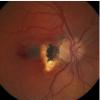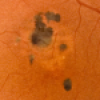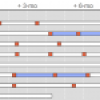Saving central vision.
Not all macular degeneration is the same. Macular degeneration broadly describes the loss of cells within the macula, the central part of the retina critical for high-resolution sight. Degeneration of the macula may be linked to age, genetics, or acquired conditions.
In the clinic and operating room, we are using medications and surgery to alter the course of these blinding conditions. We have published several studies in peer-reviewed journals on the use of anti-VEGF therapy for bilateral injections, peripapillary choroidal neovascularization, macular telangiectasia, and women during pregnancy. We also identified surgeries that may delay the progression of age-related macular degeneration.
In the laboratory, we are using genetics and proteomics analysis to identify the causes and new therapeutic targets for macular degeneration. We are fortunate to have won competitive grant support and received philanthropic support for these studies.
Please contact us for a consultation or learn how to support our research programs.







